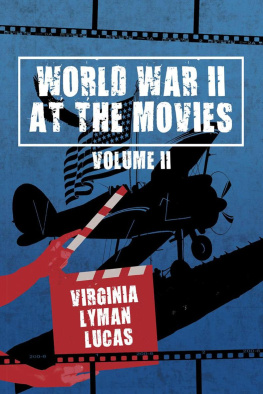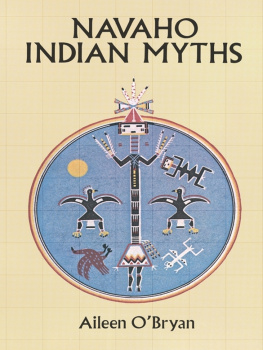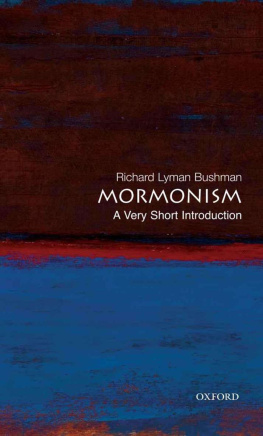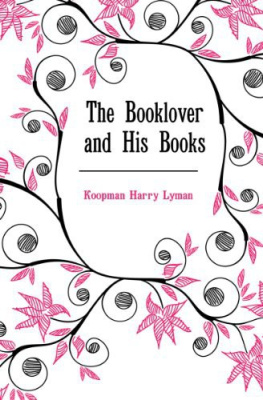CHAPTER ONESOWAGERIE, WHICH MEANS GREEN-HAIR
A dozen mounted Paiutes followed the winding trail through the dust and the shadscale of the desert south of Clay Hill. In the early twilight of that September day they paused on the bank of the San Juan River to water their thirsty ponies. Then they rode through the low stream to the Navaho country on the other side. West of them, as the shadows deepened, the rugged outline of Navaho Mountain cut off the last glimmer of day, leaving them to follow the dim trail on and on into the night.
Pikeytooish apane! (Come onhurry up!) urged Mike, their leader, a short, thick man with massive neck and ponderous mouth. Hurry up or the sun will be shining before we get there. Why so slow? Any of you want to go back?
Nene kotch , (Not I) swore Chee, his ponys head bunting the tail of Mikes cayuse.
Nene kotch echoed ten others with emphasis, and they whipped on with new speed into the darkness.
In spite of their haste, the sun did shine before they got there. It blazed triumphantly over the broken profile of the eastern horizon, before the weary riders finally sighted the coveted prize in the valley below themthe prize that had lured them into four days of hard riding from their wickiups near Blue Mountainfour long days and then one torturing night in the old-style Paiute saddle.
With excited whispers they contemplated the prize as it moved along the trail in the canyon. Soos, so-use, wiuni, piuni, watso-wi-uni, nava-ga-uni, mana-ga-uni they counted up to thirtythirty fat Navaho horsesblacks, pintos, buckskins. And thenjust coming into sighta white snorting stallion carrying a man.
That man! That man on the white stallion! What about him? Maybe he was Tsabekiss, the big Navaho. If not, he would be sure to fly at once to Tsabekiss with the alarm, and the whole country would rise like a whirlwind.
Kill im! grunted Mike, the Paiute leader, with unhesitating finality.
No! objected Chee. Take im with us.
Take im with us. echoed the ten others, and Mike yielded to the majority.
Following a carefully-made plan they rode out one at a time with wide, fawning smiles to the man on the white horse. It was Tsa. When he betrayed alarm at their numbers, they grasped the white stallions bit and seized Tsas hands lest he put up a fight or spring to the ground and dodge into the rocks.
Brusquely they stripped him of every weapon, even to the knife on his hip, and ordered him to go with them and make no noise.
Ten of the Paiutes rounded up the thirty horses and turned them back up the hills towards the San Juan. Mike and Chee held Tsa on the white stallion, and forced him to ride on the heels of the flying band.
Into the clear morning air rose the dust of this headlong flight. A Navaho shepherd girl saw it and ran to the hogan of Tsabekiss, the big Navaho. Tsa means rock, bekiss means his brother. The big Navaho was the younger brother of the man taken captive on the white stallion. Being all but left afoot by this daring invasion of his remote dominion, and alarmed for the safety of his brother, Tsabekiss ran to his neighbors for help and for horses. They took up the deeply cut trail, with the thieves a full hour ahead.
The big Navaho, Tsabekiss, rode a buckskin mare, as tough as the greasewood on which she had subsisted from colthood. Behind him thundered ten other Navahos in a fury, sworn to rescue Tsa or to avenge his blood at the cost of their own.
Down the rocky, sidling trail the marauding Paiutes plunged their lathering band in a mad rush of hoofs and splatters of blood from feet bruised and torn. They trod one on anothers heels, jostling violently through narrow passes in feverish haste, with Tsa held helpless between his two unremitting guards.
Down the same perilous trail the pursuing Navahos plunged furiously with lash and lather, beating hoofs, and muttered curses. The stalwart Tsabekiss hurtled in the lead, his pent wrath fairly hissing between his teeth, Chinde! Cliz bekigie! (Devil! Snake-skin!)
Cliz bekigie! echoed the ten behind him. With no horses to drive, they gained steadily on the wild outfit ahead. Up hill and down with merciless urge, they drew nearer and nearer till they caught sight of the jostling band stringing into the mouth of a little canyon not far ahead.
Ta-halo! (Hold!) called Tsabekiss wildly to his men as he abruptly reined in his yellow mare in terror. We are riding into an ambush! We must find a way out to one side.
A heap of stones in a dry silent region marks the only place where four states of the United States corner together. This isolated spot is known as Four Corners. Walk around this heap and in five seconds you have traversed a little territory of Utah, Colorado, New Mexico, and Arizona!
In 1860 this wilderness point stood far beyond the wild frontier of civilization. To the northwest of it lay what is now San Juan County, Utah, a rugged, broken area about the size of the state of New Jersey. It was the heritage of a thousand Paiutes, a degenerate offshoot of the big Ute tribes of Utah and Colorado. Their name stems from the original name Ute plus pi or pah which means water. It originated as a term of reproach to the fathers of the Paiutes for their refusal to join the main tribe in facing the dangers of war on the uplands. Because they stayed in their camps down by the water, they became known contemptuously as Water-Utes or Paiutes.
These Paiutes of San Juan stubbornly refused any government-appointed reservation. Descended from generations of self-willed unconquered ancestors, they insisted on making their own laws with complete disregard (if not open scorn) for the requirements of the United States, then a century old. They proved themselves more than a match for the thousands of Navahos across the river to the south. Having nothing to lose in the way of property, they became merciless parasites on their industrious Navaho neighbors. Besides their superior trickery in expeditions of plunder, they could retreat to their chosen wilderness and disappear among the rocks like rats in a lumberyard. The San Juan River separated the two tribes of this remote region, serving as a barrier of defense between them or as a base of attack in their frequent conflicts.









